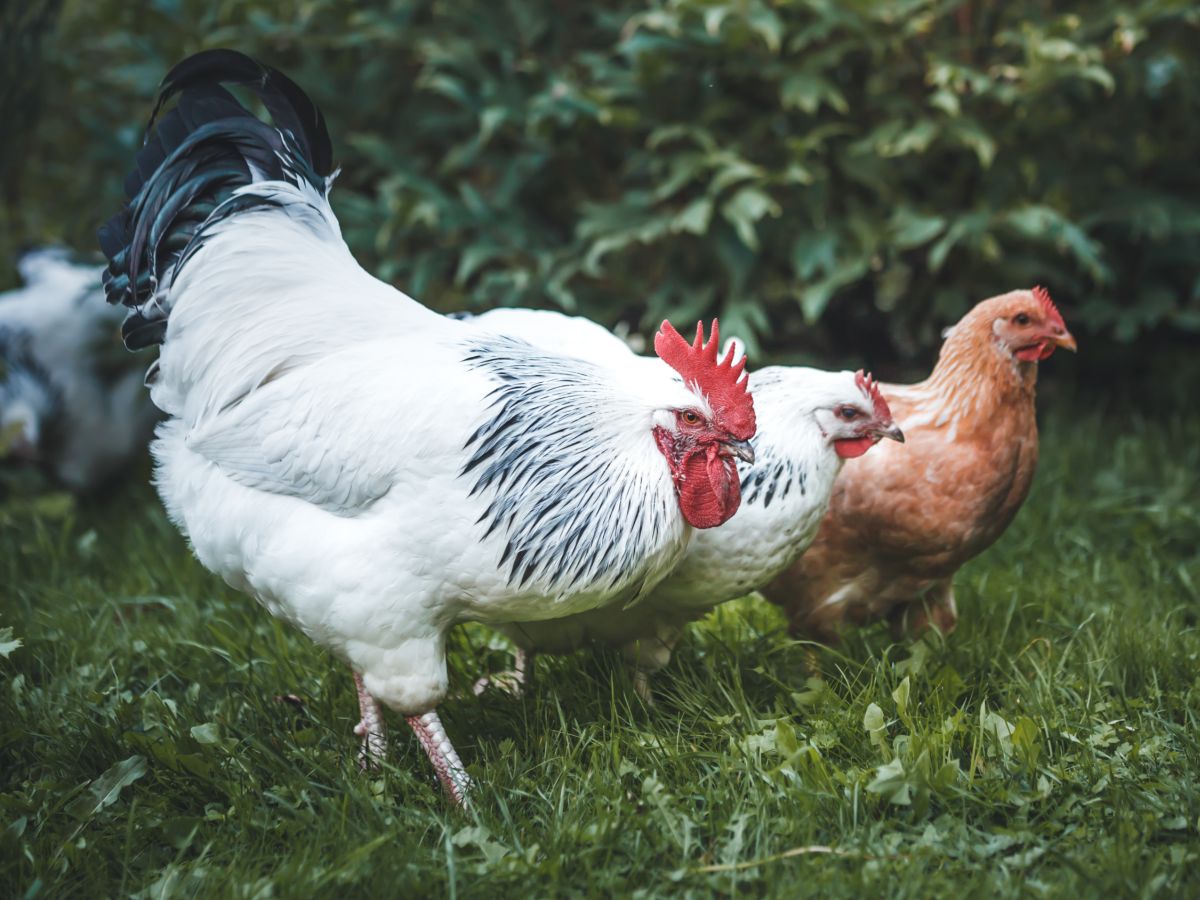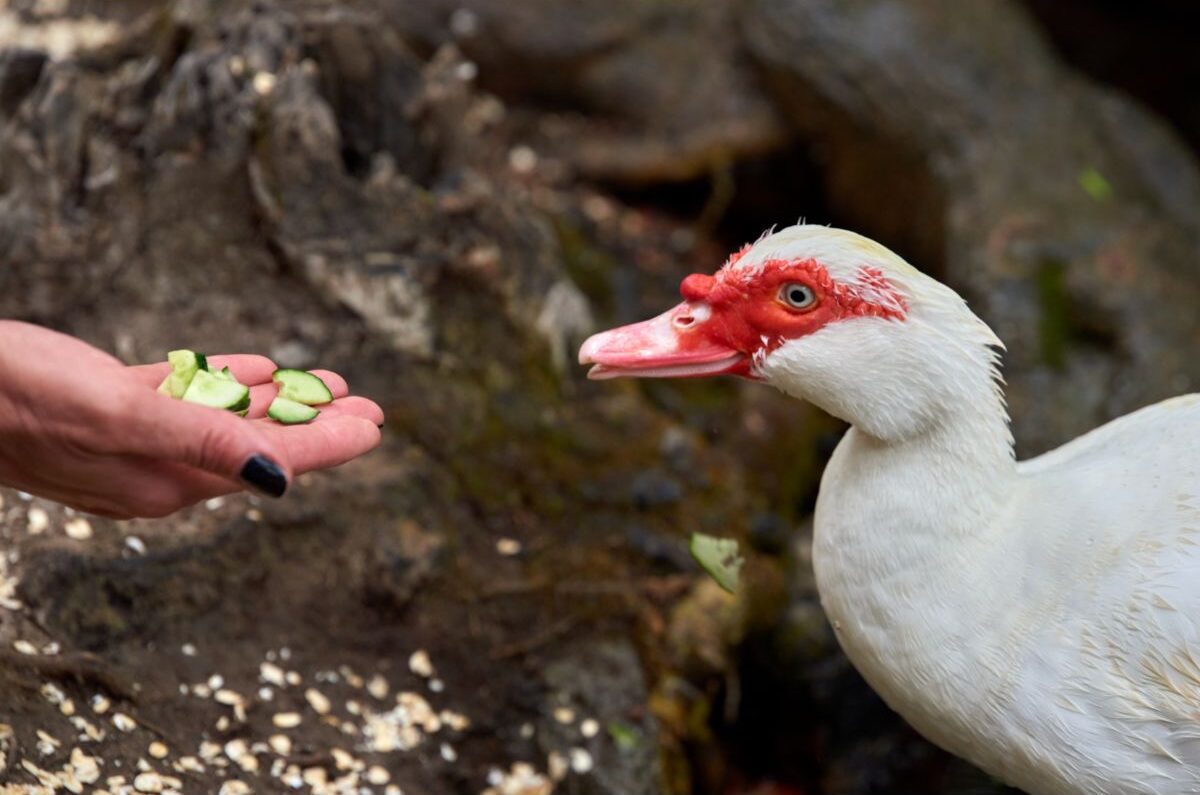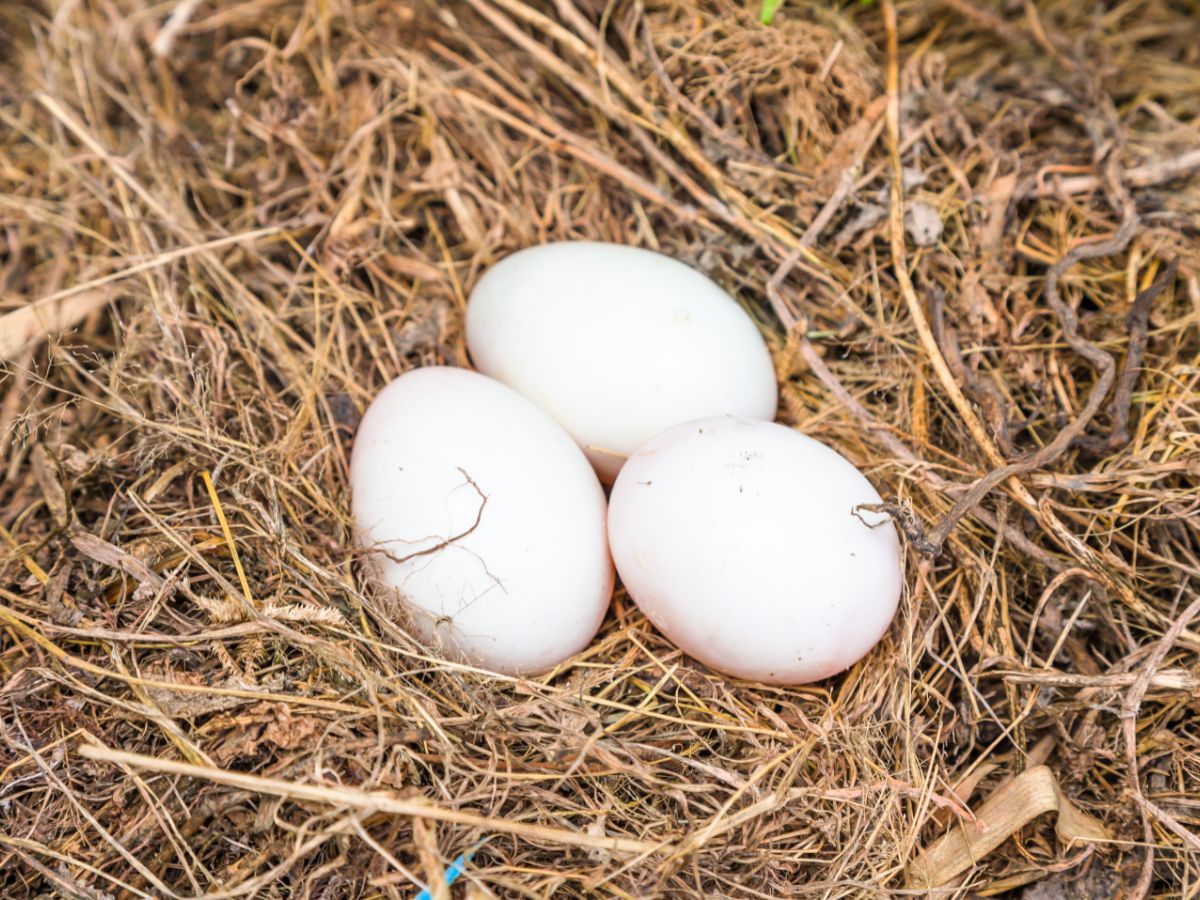A growing number of people living in urban areas are keeping their own flock of chickens in their backyard. Some see it as a step towards sustainable living. Others just love the idea of fresh eggs every day and free lawn fertilizer.
Caring for backyard chickens is as simple as opening their coop in the morning and shutting them in at night, keeping their waterers and feeders full, collecting eggs daily, and cleaning out their coop monthly. Chickens are the perfect low-maintenance pet. Anyone can keep a flock of chickens!
If you are eager to join the backyard chicken movement but are unsure how you have come to the right place! This article discusses the basics that you need to know to successfully keep a flock of chickens in your backyard.
Contents
What Do You Need To Keep A Backyard Flock Of Chickens?
Caring for your backyard chickens starts as soon as they arrive, so you need to be prepared! Before bringing your new chickens home, it is important to make a place for them to live and buy all the equipment and materials you will need to care for them.
To keep a small backyard flock, you will need the following:
- A chicken run to give the birds a safe outdoor area to live in during the day
- A chicken coop for the birds to sleep in safely at night
- A nesting box inside the coop for the hens to lay their eggs
- Bedding like wood shavings or straw for the coop and the floor of the run
- Chicken feeder
- Chicken waterer
- Chicken feed
- Chicken scratch
- Grit
Requirements For A Backyard Chicken Coop
Chickens do not need a five-star coop to live a happy, healthy life. You can buy an expensive chicken mansion for your birds, or you can simply upcycle materials that you already have and build the coop yourself.
A well-designed chicken coop should have the following:
- Enough space for all the chickens. Each bird needs 4 square feet or more of space inside the coop.
- A water-proof roof. It is important to keep chickens out of the wind and rain overnight.
- Predator-proof wire for the sides of the coop. Chicken wire can keep chickens in, but it is not strong enough to keep predators out. It is best to use ¼-inch hardware mesh.
- A floor to keep predators and rodents from burrowing into the coop. Alternatively, you should dig the sides of the coop 12 inches into the ground.
- Enough windows for ventilation. The coop should not have a draft blowing through it, but it must have adequate airflow to prevent the chickens from developing respiratory issues.
- Roosting poles for the chickens to sleep on at night. Chickens need a 2-inch-wide roosting pole, and each bird should have 5 to 10 inches of space. If there are two or more roosts, allow 10 inches of space between them.
- Laying boxes. Hens need a cozy place where they feel safe enough to lay their eggs. Laying boxes should be in the darkest corner of the coop. It is convenient to have a small access door to collect the eggs.
- A waterer and feeder. It is more efficient and hygienic to put chicken feed in a feeder than to throw it on the ground. A hanging waterer is best because it stays cleaner for longer.
- A removable bottom for easy cleaning. Chickens poop inside their coop, so once a month, you need to replace the chickens’ bedding. If the coop has a floor that can be removed (especially the area beneath the roosts), it makes cleaning much easier.
- A large access door. Apart from a small door for the chickens to get in and out, the coop should have a large door that allows you to access the inside of the coop to clean it.
Backyard Chickens Need A Run
Chickens stay in their coop overnight, but during the day, they need a safe, enclosed area to live in. Even if you plan on letting your flock free range in the garden all day, the chickens still need a run for times when you cannot supervise them or when you go away on vacation.
A chicken run can simply be a fenced-off area around the coop, or you can build chicken tunnels around the garden. Whatever the design, it must be able to keep the chickens in and keep predators out.
It is best for a chicken run to have a closed top to stop the birds from escaping and keep them safe from hawks and other birds of prey.
A chicken run should be nice and large so that they have plenty of space in which to move, scratch around, dust bathe, and nap. Each bird should have 10 square feet of space inside the run.
The run should have a shaded area for the chickens to escape the heat and a covered area where they can stay dry on rainy days.
Raising Baby Chicks Vs. Starting With Grown Pullets
The easiest way to establish a flock is to buy a few pullets or adult hens, but many people prefer to raise hatchlings. Chicks are adorable but raising them is a full-time commitment. You must be the mother hen and keep a close eye on them for 4 or 5 weeks.
The benefit of raising baby chicks is that they bond with you more easily, so they will be tamer and easier to handle as adults. If you want your backyard chickens to be pets, raising hatchlings is advised.
To raise baby chicks, you need the following:
- A brooder – this is the enclosure in which the chicks will spend their first month. It can be a big cardboard box, an old bathtub, a plastic tote, or even an inflatable kiddie pool. It must be well ventilated, and each chick should have at least 2 square feet of space.
- A heating pad – before chicks have grown their feathers, they cannot keep themselves warm. Provide them with an electric heating pad in the brooder to help them regulate their temperature.
- Bedding – baby chicks create a surprisingly large amount of poop! Soft, absorbent bedding, like wood shavings, inside the brooder, will soak up their waste.
- A chick waterer – hatchlings can easily drown in shallow dishes of water. Get a special chick waterer to keep them safe.
- A chick feeder – Get a special chick feeder instead of using a shallow dish that chicks can get into and contaminate their feed.
- Chick feed – mash or crumbles
- Chick grit

Keeping Backyard Chickens For Eggs Vs. Meat
Many backyard chicken owners keep their birds as pets and only collect their eggs. However, people who are more interested in a homesteading lifestyle like to raise chickens for meat.
Some chicken breeds are better for egg laying, while others grow faster and are better for meat. You also get dual-purpose breeds, like Orpington and Sussex. They are good egg layers and grow to a nice size for the dinner table.
If you are keeping chickens for eggs, you should give them layer feed. This has enough protein and calcium to support healthy egg production.
If you are keeping chickens for meat, you should give them broiler feed. This will speed up their growth and fatten them up nicely.
Daily Care For Backyard Chickens
Chickens are low-maintenance pets. Fifteen minutes per day is all it takes to care for chickens, so even the busiest families can easily keep a backyard flock.
The daily routine for backyard chicken owners looks something like this:
1. Let The Chickens Out In The Morning
First thing in the morning, the coop door must be opened so that the chickens can begin their daily activities. Try to open the coop as soon as possible after sunrise. If you prefer the thought of sleeping in, you could always get an automatic coop door.
2. Free Feed Or Feed The Chickens On A Scheduled
Free feeding refers to leaving an automatic feeder out so that the birds can eat whenever they want. This is the more convenient option because, depending on the size of the feeder, you only need to fill it up once a week.
Leaving feed out all the time attracts rodents and birds, so there will be more wastage. The most cost-effective way to feed chickens is to give them a set quantity of feed at certain times of the day.
Each adult chicken needs roughly a ¼-pound of feed daily. Split this into two servings. For example, feed the chickens half their feed in the morning and the other half at lunchtime.
3. Ensure That The Chickens Have Fresh Water
Every day you must check that the chicken waterer is full and free of any debris. As the birds scratch around, they kick dirt into their water, and often their poop gets into the drinking water. Rinse the waterer out regularly to maintain good hygiene.
4. Collect The Eggs
It is crucial to collect eggs daily. If eggs are left in the laying boxes, the hens are more likely to become broody and stop laying eggs. The eggs are also enticing treats for rats and snakes, so leaving them in the coop overnight is not a good idea.
5. Allow The Chickens Time To Free Range
Keeping chickens confined to their coop and run for their entire lives would not be kind. Chickens love to forage for worms, insects, seeds, and vegetation. Ideally, you should let your flock out for some free-ranging time every day. Throw some scratch around the garden for them to enjoy.
You must supervise chickens when you let them out of their run. Therefore, it is convenient to let them free range for an hour or so before sunset. That way, you only have to be vigilant for a while, and the birds will go back into their coop on their own with no herding required on your part.
6. Shut The Chickens In Their Coop At Sunset
Night time is probably the most vulnerable time for chickens. Predators like foxes, opossums, raccoons, weasels, rats, and skunks all strike at night.
In the evening, once all the chickens are back inside their coop, you must remember to shut the door. If you think you are likely to forget, invest in an automatic coop door!
Weekly Tasks To Care For Backyard Chickens
The following tasks can be done on a weekly basis:
- Inspect the chickens for any signs of health issues. You will soon get used to how chickens normally behave and will quickly notice if there is something wrong with one of the birds. The sooner you identify a problem, the faster you can treat it.
- Tidy the inside of the coop lightly. Scrape poop off the roosts, remove any large patches of soiled bedding, and add some more wood shavings to manage bad odors.
- Top up the chickens’ grit. It allows them to digest their food properly, so they need a constant supply of grit.
Monthly Maintenance For Backyard Chickens
Each month you should spend an hour or so doing the following:
- Clean out and replace all the bedding in the coop.
- Add the soiled bedding to your compost heap.
- Wash the waterers with soapy water.
- Sprinkle diatomaceous earth inside the coop and in spots where chickens like to dustbathe. It helps to deter lice, mites, and worms.
Bi-Annual Maintenance For Backyard Chickens
Twice a year you should see to the following tasks:
- Deep clean the inside of the coop. Use detergent to scrub down the floor, walls, and roosts.
- Make necessary repairs to the coop and run. Use chicken wire or steel wool to secure any holes or cracks where rodents could get in.
- Rake out the soil in the run and add it to your compost heap.
Conclusion
Keeping a flock of backyard chickens is incredibly rewarding and a fun way to teach kids about agriculture and where food comes from. Caring for a small flock of chickens is inexpensive and does not take a lot of time or effort. Truly anyone can keep backyard chickens!




